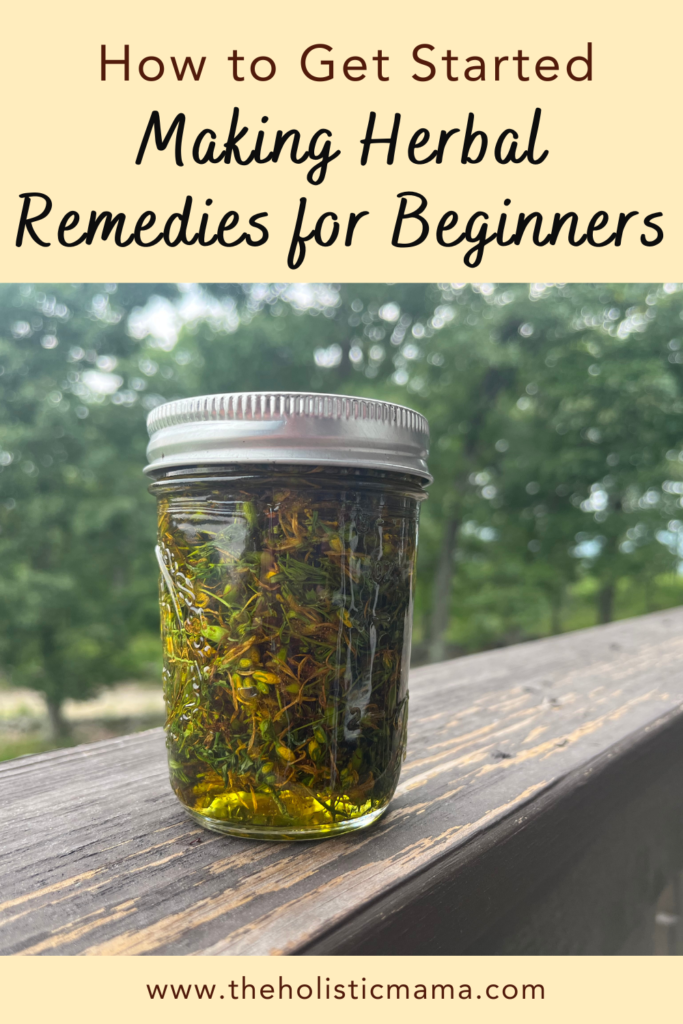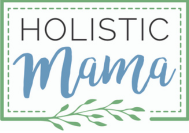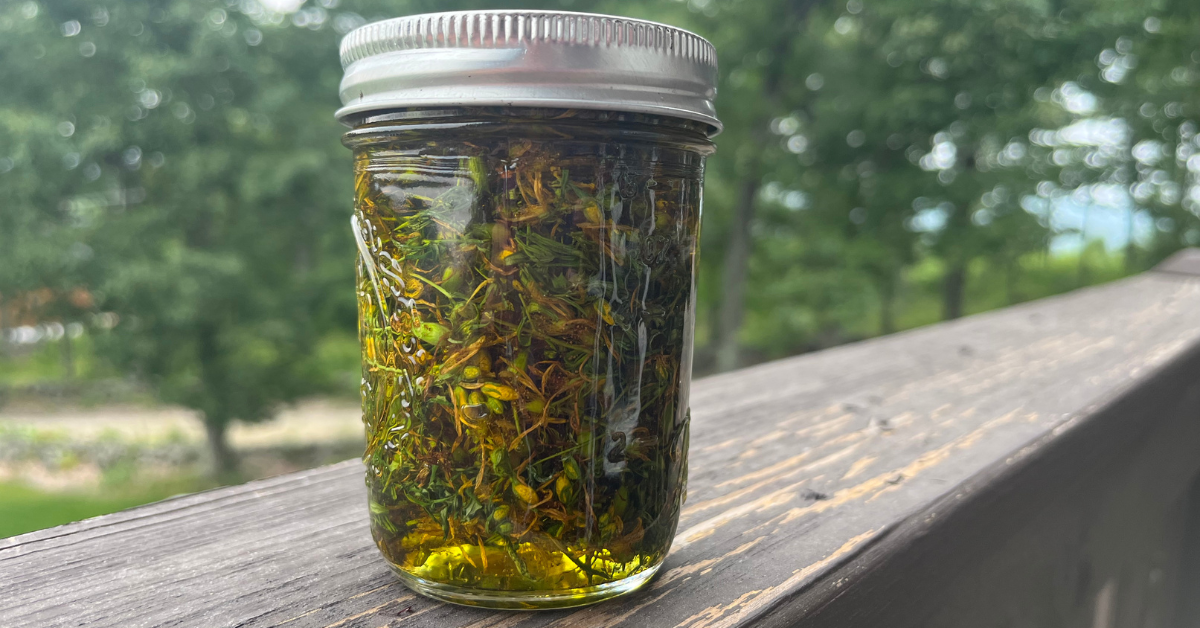If you are wondering how to get started making herbal remedies, this is for you. I'll go through step by step how you can get started on your own without feeling overwhelmed. There are so many herbs and so many ways to prepare them. When you're first starting out it's best to start with just a handful of herbs and types of preparations.
Choose Safe Herbs to Get Started
When you are new to working with herbs and herbal remedies, it’s a good idea to pick just a few herbs to learn about. There are many safe, simple herbs you can use and learn about without any worry. One way is to choose herbs that grow around you and are plentiful and available for foraging. There are herbs that almost anyone can recognize and forage. Certainly dandelions and maybe plantain or chickweed which are all easily recognizable.
Alternatively, if you are dealing with a specific health concern you may want to read about herbs that help with your health issues and learn about those first. If you are working on gut health, marshmallow root is a wonderful herb to get to know.
Herbal Remedy Books for Beginners
There are a great number of amazing herbal books out there that you can purchase to get started making herbal remedies. This blog post has a listing of many excellent books you can read to start educating yourself. I highly recommend your first book purchase is the The Encyclopedia of Herbal Medicine. This book covers a large number of herbs. It also offers an overview of the most important things you need to know about each herb.
Obtaining Medicinal Herbs
Once you've decided on one to three herbs to start learning about you will need to obtain your herbs. Essentially, there are three ways to gather medicinal herbs. The simplest way to obtain herbs is by foraging. If you are not ready to dive into learning about foraging, you could also start a small herb garden. Growing your own herbs is quite rewarding but takes a little time, patience, and planning. If you really want to start right away you can purchase some dried herbs from a reputable source.
Identifying Herbs & Foraging
If you are interested in foraging for herbs in your local area, learning plant identification is of the utmost importance. When foraging you want to be completely certain the plant is safe and properly identified. There are many foraging books you can purchase that are geared towards your specific geographical area. I highly recommend you get one or two of these books. Start using these books to identify plants in your yard as a practice. You may be able to find a local foraging walk with a herbalist who is well-versed in plant identification. If you are able to find that, you should definitely take advantage of it. There are also some foraging groups on Facebook you can join even browsing those groups. You will learn a lot about plant identification in your area.
Growing Herbs
The next way to obtain high-quality organic herbs is to grow them yourself. First you’ll need to identify which herbs can grow in your climate. The foraging books can also help you to decide what to grow by understanding what plants like to grow locally.
Culinary Herbs
There are many culinary herbs that have medicinal properties and are safe and fun to work with. These are also very easy to find even at a garden center as a starter seedling. I have purchased many herbs this way and they have continued to grow in my garden year after year.
Many plants in the mint family are easy to find at a garden center including mint, spearmint, catnip, or lemon balm. Rosemary is also and easy to find perennial so it will continue to grow each year if tended. Oregano is another culinary herb that you will find as a seedling. You can use your oregano plant to make an oregano tincture or oil of oregano. These are very powerful natural remedies to have in your home apothecary. Any of these culinary herbs are all wonderful herbs to start with and easy to obtain plants.
Purchasing Dried Herbs for Natural Remedies
If you are interested in working with herbs that you can’t forage or grow (or you want them right away), you can purchase them dried. There are a few reputable sources for high-quality herbs. There are three websites that I can confidently recommend to you as sources of high quality medicinal herbs.
- Starwest botanicals
- Frontier co-op
- Mountain Rose Herbs
You may also be able to find some herbs locally if you are lucky enough to have an herb shop nearby. Some health food stores and farms also offer some medicinal herbs for sale. Do some research in your local area and see if there are any shops nearby. A local shop or farm is the ideal place to purchase herbs especially if they use organic growing practices.
Supplies to Get Started Making Herbal Remedies
When you first start working with herbs there are some supplies you may want to have. If you are getting into foraging there are some forging tools you may want to look into getting. Of course all you really need to start foraging right away is a basket and a sharp pair of scissors.
There are many kitchen tools that you may start to need when creating all of your herbal preparations. Here are some of the basic things you'll want to have on hand as you are learning about herbal preparations.
Basic Kitchen Supplies
- a metal fine mesh strainer or cheesecloth
- glass jars for making tinctures
- glass jars for storing your finished herbal remedies
- labels for your jars
- A basic stainless steel pot
- A glass measuring cup
- Stainless steel measuring cups
- a digital scale
Extra Fancy Herbal Supplies
Of course there are many many more supplies that you can purchase. You may want to purchase more down the road but you don't need them right away. I use a much more fancy herb press for straining out my herbal creations. Honestly, a fine mesh strainer will work for very small batches. In the beginning, that is all I used. There are also other tools like an oil infusing machine. You can read about my review of the levo here in this post.
Right now, I recommend you don't go out and buy a ton of stuff until you start learning about the preparations. You will develop your process and how you personally like to make your remedies. Everyone has their own preferences and you will figure out what you need along the way. I wouldn't go out and invest a ton of money until you have started making some herbal preparations. There are an endless amount of beautiful teapots with metal inserts for teas (I have many of them myself). Obviously, they are not necessary to get started making herbal remedies.

Types of Herbal Remedies
Once you have decided on a few herbs to start learning, you can get started making herbal remedies. The most simple, yet powerful preparation is an herbal tea or infusion. The process is simple and familiar, steeping the herbs in just boiled water. The longer you let your tea steep, the more benefits you will receive. Here are some of the basic beginner preparations you will want to start familiarizing yourself with:
- Herbal tea
- Cold infusion – this is how to make a cold marshmallow infusion
- Herbal Decoction – similar to a tea but longer boiling time for roots, barks, and berries
- Herbal Tincture
- Infused Vinegar – like a tincture but with vinegar, works well to extract vitamins and minerals
- Cold oil infusion
- Hot oil infusion
Lastly, the best way to learn herbal medicine is to start using herbs and making herbal preparations. Reading herbal books and blogs are also incredibly helpful. There are even some videos online you can watch. Most importantly, start with safe simple herbs. I have been working with herbs for many years. I still do not use herbs that have dangerous qualities without the guidance of an experienced herbalist. Or mostly, not at all. There are so many safe and simple herbs to use that I really haven't found much of a need to dive into herbs that may have some dangers. This is where reading herbal books and blogs really come in handy because you learn about herbs that you need to be careful with.
I hope this overview has been helpful. Please feel free to comment if there are things I should add to this step by step guide. Or if you have questions!
Thank you for reading this post, don't forget to subscribe to stay in the loop. If you are looking for some of the healthy tools and resources mentioned in my articles, take a look at my healthy shopping guide.
Some of our links are affiliate links, which means if you click and buy, I earn a small commission. The price is the same for you, though. Thank you!
You might also like these posts...

